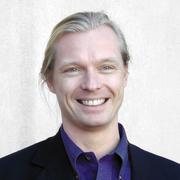Professor of Radiology, Harvard Medical School
Director, Laboratory for Mathematics in Imaging (LMI)
Center Director, Neuroimaging Analysis Center (NAC)
Carl-Fredrik (C-F) Westin, is the founding director of the Laboratory of Mathematics in Imaging (LMI, http://lmi.med.harvard.edu), Distinguished Robert Greenes Chair, and Professor of Radiology at Harvard Medical School, Boston. He is Director of the Neuroimage Analysis Center (NAC), a Biomedical Technology Resource Center BTRC funded by NIH National Institute of Biomedical Imaging and Bioengineering (NIBIB). Additionally, he has a joint appointment with the MIT Computer Science and Artificial Intelligence Laboratory, Cambridge, MA. The Laboratory of Mathematics in Imaging is focused on the application of mathematical theory, analysis, modeling, and signal processing to medical imaging applications.
Dr. Westin’s main direction of research is the development of novel methods for analysis of imaging data. He has been involved in imaging studies, including structural, functional and diffusion-weighted magnetic resonance imaging (dMRI) studies since 1996 when he joined Brigham and Women’s Hospital and Harvard Medical School. Over the past two decades, Dr. Westin has developed considerable expertise in all aspects of dMRI. He has (co)-authored over 300 publications, abstracts excluded, in the fields of computer vision, medical image analysis and image guided surgery. His laboratory is known for developing new algorithms and technology for analysis of dMRI data. During his career, Dr. Westin has mentored five undergraduate students, 22 graduate students, 17 post-doctoral fellows, four medical students, and eight faculty. He has served as a Guest Editor on several special issues on image analysis (IEEE Transactions on Medical Imaging, International Journal of Computer Vision, Signal Processing).
During the past five years, Dr. Westin and collegues have been working on the next generation dMRI, which has the potential to vastly improve tissue characterization. These methods have transformed what it is possible to measure by probing features of micron-scale transport processes (and thus microstructure) that are invisible with today’s standard techniques. One central concept of these methods is tensor-valued diffusion encoding, where the classical b-value in diffusion MRI is extended to a tensor, a "B-tensor". This concept was introduced in 2014 in "Measurement Tensors in Diffusion MRI: Generalizing the Concept of Diffusion Encoding" [Westin2014]. A extended version of this multidimensional diffusion MRI framework was later published in 2016, "Q-space trajectory imaging for multidimensional diffusion MRI of the human brain" [Westin2016]. These acquisition and analysis paradigms can improve discrimination of the sizes, shapes, and orientations of diffusion microenvironments within tissue. The aim of this new work is the development of methods that can clearly distinguish among different tissue architectures in clinical diffusion MRI. The novel methods explore the power of time-varying gradients that probe trajectories in q-space, which is termed “q-space trajectory imaging” (QTI). QTI has the potential to make available a range of new measures with greater sensitivity and specificity to the nature of tissue structure and pathology in the human brain.
More information about multidimensional diffusion MRI and related work by the team can be found here. This multi-disciplinary research program involves investigators from applied mathematics, information theory, medical physics, radiology, and physical chemistry.
Scientific communities involvement:
- Editorial Board Journal of Biomedical Informatics
- Area Chair MICCAI: 2006, 2007, 2008, 2009, 2010, 2011, 2012, 2013, 2014
- Program/Review Committee: CVPR, ICCV, MICCAI, ECCV, ICPR, ISBI, MMBIA, etc.
- Area Editor for Pattern Recognition Letters
Conference organization experience:
- Diffusion Tutorials at the conference Medical Image Computer and Computer Assisted Intervations: MICCAI 2007, MICCAI 2008, MICCAI 2009, MICCAI 2010
- Track Chair, World Congress 2009, Medical Physics and Biomedical Engineering
- MMBIA 2007: Program Chair (over 100 delegates)
- EUROCAST 2003: Program Chair Neuroimage (over 100 delegates)
- IPMI 2015: Co-chair (over 130 delegates)
- CMIA 2019: Chair
Contact Information
Brigham and Women's Hospital, Harvard Medical School
1249 Boylston Street, Boston, MA 02215

